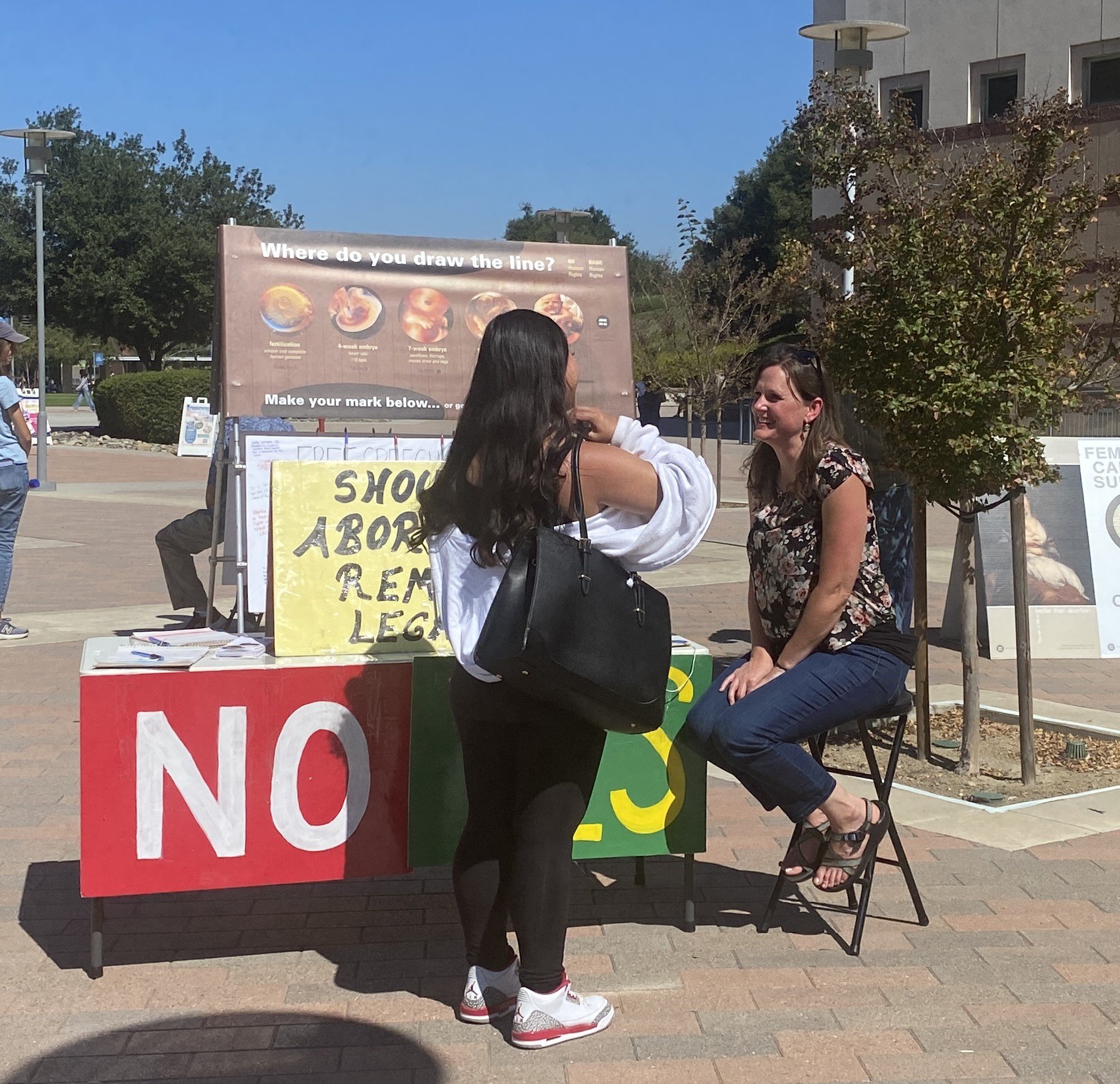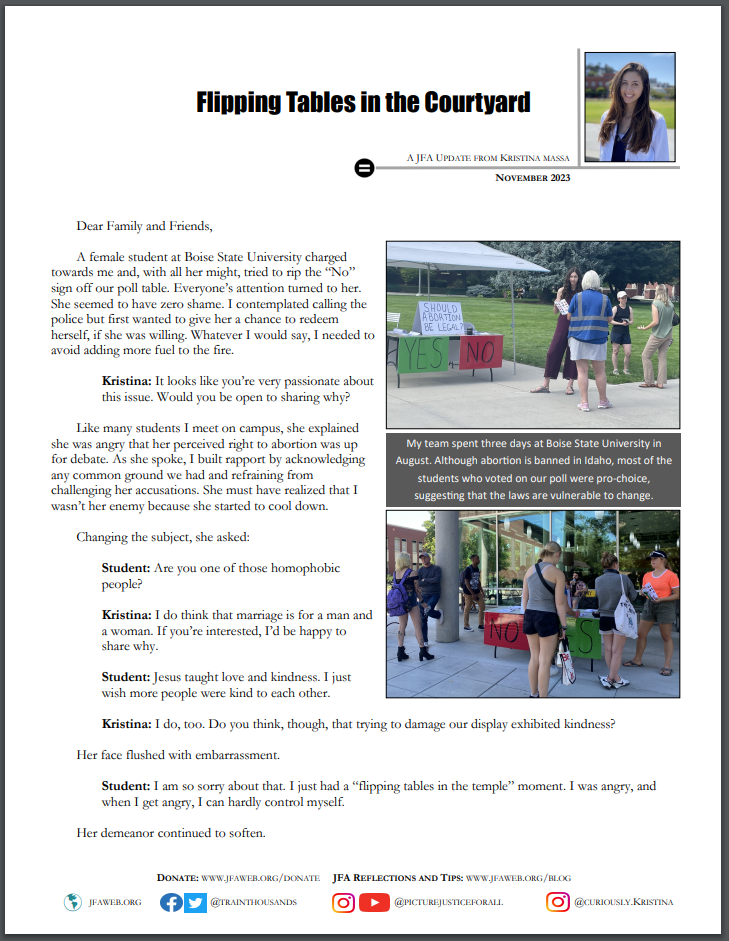The poll asked, “Should abortion remain legal?” Students could vote yes or no.
My teammate Andrea and I recently conducted outreach at a college campus in Minnesota, setting up our table across from the campus cafeteria to engage with students between classes and meals. From the moment we were ready, it felt like there was no downtime—student after student approached us, curious, skeptical, and eager to talk.
At one point, I placed two JFA brochures on the table—one visible to those on the "Yes" side of our poll and the other to those on the "No" side. Shortly after, three students approached, chatting in French. They were international students from West Africa, each holding a different view on the topic: one woman was pro-life, her friend was pro-choice, and the man remained silent, observing their exchange.
The pro-life woman leaned over the poll, reading some of the responses on the "No" side. She picked up one of the brochures, noticing the bolded red warning printed on the bottom of the page: “Warning: Graphic images of abortion inside.” Without a second thought, she opened the flap and, to my surprise, nearly shoved it into her friend’s face (not exactly something we recommend doing!).
This is how I placed the brochures on both sides of the poll table.
Her friend flinched, startled, her eyes locking onto the graphic images. She stared in silence, processing what she saw. Then she slowly turned toward the poll table, glancing back and forth between the "Yes" and "No" sides. You could see the hesitation as her previous certainty began to waver.
After some thought, she picked up the pen on the "No" side, leaned in, and carefully wrote her reason:
"Because life is precious, and everyone should be given a chance to live."
Curious, I asked her, “Did you change your mind about abortion?”
"Yes," she said. "After I saw those images, I can’t support it."
Thanks be to God! While seeing the reality of abortion doesn’t change every pro-choice person’s mind, it can certainly aid many conversations, bringing clarity to what abortion truly is. Never underestimate the power of a picture.
















